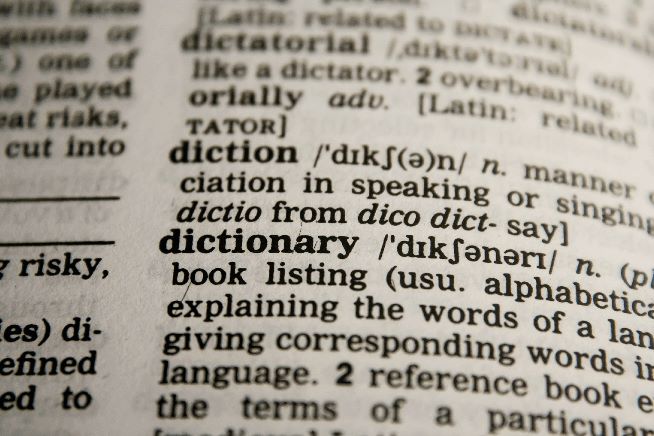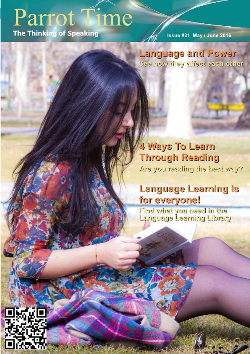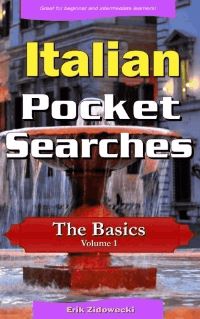
|
Reading is a simple, easy-to-do, and interesting pastime that everyone can do. I have seen many people spending hours reading in coffee shops, libraries, and bookstores. Whether you read for fun or read to gather information, did you know that you could also learn languages through reading? I have been using this method most of the time to learn many languages, and in fact, this is the most comfortable method that I have ever used, perhaps because reading is my hobby. Choose what to read 1. Not heavy topic, easy reading is enough  You might be a businessperson, you speak English, and you started to learn Spanish less than a year ago because you are going to expand your market to Latin America. It is normal that you are intrigued to read business review in Spanish, but hold on! Are you really ready for that? You might still be struggling with basic conversation, so it is best to improve in this fundamental area of a language first before continuing to a much higher level. Keep in mind that you are, let's say, 20 years old, and you just started to learn a foreign language. Your level is not the same as that of the native speaker of the language but it might be just the same with a 5-year-old speaker of that language. In other words, you are 20-year-old person in your language but you are not a 20-year-old person in your target language if we take fluency level as the judgement. Therefore, it is recommended to choose reading topics based on your level of understanding. If you are still considered a beginner, you can read children books. Children books usually have short sentences and less difficult words than what a novel could have. The main purpose here is to get comprehensible input so you need to start from the easiest, and let your knowledge improve your vocabulary to understand more difficult topics. 2. Not long articles that could make you fall asleep The length of the article is not important. Never think that you would learn much more when you read longer articles. In fact, I'm afraid that it might demotivate you with a large workload. Start with short articles, it can even be just one paragraph. Then, if you think that you can continue, read another paragraph. You can also take a rest in between to review new words that you have learned during your reading. The easiness to read depends on your language background because when you are reading, you see the written text of the language. An Indonesian speaker will need much more effort to read Chinese characters than Korean or Japanese speakers. This is because Chinese characters exist in Korean and Japanese but not in Indonesian. Therefore, Korean and Japanese speakers are more familiar with the characters although the pronunciation might be slightly different. 3. No time, no problem, read online from anywhere  Some people like to buy books from bookstores or borrow from libraries, some other even like to spend time in both places just to read books, without buying or borrowing. However, you need time to go to the bookstore or the library, and you may need to take public transportation, so it means that you would spend much more time not reading. We are lucky nowadays because we have the internet, and the internet has changed our way of life. You can simply google any topic you want to read or download. If you are a typical busy person who doesn't have much time to spend in bookstore or library, you can read online on the way while commuting or waiting. You can read from anywhere! And you will never run out of time to read. I read almost everywhere -- at home, office, school or public places. It is free, easy, and fun because if you do it online, you also have the ability to share it with your friends what you have just read instantly. This is because many websites have had social media sharing buttons nowadays. 4. No worries, you can read anything I have mentioned about reading children books. Besides, you can also read other written media, such as magazines, newspapers, novels, and even brochures and posters. Whatever you read, you will learn something, and reading activity helps you to improve your vocabulary. If you read about lifestyle magazines, you will learn many words relating to daily life. If you read about brochures, you can learn words related to the products or service being promoted. When you go to public places, such as an airport, train station, or shopping mall, you will most likely see announcements or signboards in two or more languages. This is because these places are usually places that foreigners would go. You can even learn many new words by reading announcements and signboards! In general, English is the common foreign language used in this context but if you are lucky, you would also see the text written in multiple languages. Know more words 1. Read and check dictionary  I still remember when I just came to Taiwan, a dictionary was my "good friend". I didn't speak Mandarin and didn't recognize Chinese characters. I really pushed myself to the max to survive in this foreign land. I carried a dictionary app wherever I went, and I checked words in it anytime, anywhere. Apparently, this habit continues to grow in me and I still check a dictionary to learn languages nowadays. However, I don't always check a dictionary because it sometimes makes my reading not fun at all, so what I do is to check the word only if it has appeared multiple times. A word could have multiple meanings, so understanding from the context is still necessary. You sometimes can even guess the meaning! There are many digital dictionary available online, and perhaps, Google Translate is the most popular. Personally, I think that it is quite good for translating single words, however, translating longer text would still be better done by human. 2. Read first in the language that you understand Some popular books are translated into multiple languages in order to be able to capture a much larger part of the market from different countries. One of the most popular is _The Little Prince_. This novel is even available in Esperanto! Apart from books, you can read articles like those in Wikipedia. I like Wikipedia so much. All of the articles are available in more than 1 language. It means you have the capability to read the same topic in several languages, and you can start with the language you understand in order to get the main idea of the article before reading it in other languages. 3. Prepare a notebook, easy for review  When you see important words and phrases while reading, you can write them down in a notebook so you can review them later whether to refresh your memory or to use the words and phrases in real conversation. You can even create your own phrasebook after you have accumulated many words and phrases. Through this method, I have created a phrasebook template in which I use English as the first language and second language could be any languages that I want to learn by using this book. The content consists of words and phrases that I think would be useful for me, that I would use in real conversation, such as some phrases about meeting new people and ordering food in the restaurant. 4. Which one is more important: vocabulary or grammar? This is one of many frequently asked questions. I believe that both vocabulary and grammar are important for mastering a language. It is always best if you can excel in both areas, but which one would you choose when you have limited time and resources? Grammar comprises a set of rules about constructing sentences. It is like the walls of a building. On the other hand, vocabulary consists of words. If you know many words but lacking of grammar skill, you might be able to express your thinking in several words, but not in a complete structured sentence. On the contrary, if you are good in grammar but not in vocabulary, it would be difficult for you to express yourself because you don't know which word to use. In my opinion, I prefer vocabulary over grammar because I want to have the capability to express myself in different ways. With the lack of grammar skill, I might speak like an infant but that doesn't matter for me because I believe that I can learn from my mistakes and as the time goes by, my skill will increase by itself. |
| 4 Ways To Learn Through Reading | |||
| Writer: | Teddy Nee | ||
| Images: | |||
| |||
All images are Copyright - CC BY-SA (Creative Commons Share Alike) by their respective owners, except for Petey, which is Public Domain (PD) or unless otherwise noted.
comments powered by Disqus

















